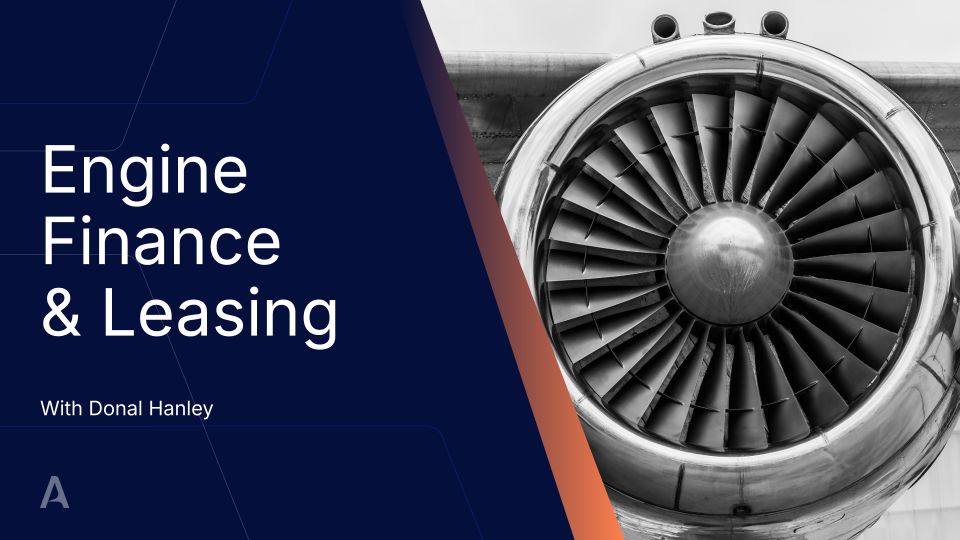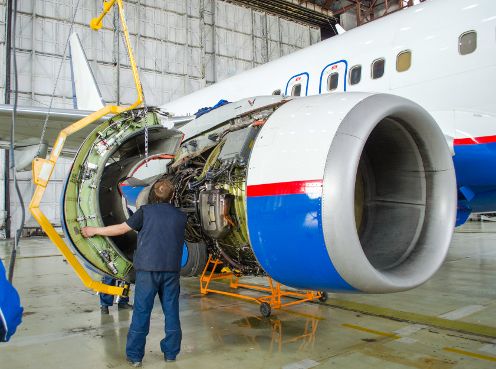Engine Finance and Leasing
Gain a complete understanding of engine leasing and financing practices, including valuation, risk management, and contract strategies to optimize engine asset decisions.

@ Aeroclass


Course description
Engine leasing and financing play a vital role in modern airline operations, providing flexibility and financial efficiency in managing propulsion assets. This course offers a comprehensive overview of how engines are leased, financed, and valued throughout their lifecycle.
Participants will learn about engine leasing models, financial structures, valuation methods, and residual value considerations. The course also addresses contract negotiation, maintenance reserves, risk management, and the relationship between engine and aircraft leasing.
By the end of the training, participants will have the knowledge needed to evaluate, structure, and negotiate engine financing and leasing agreements effectively.
Participants will receive access to the Aircraft Financing and Leasing Fundamentals video course 14 days before the training begins, and it is strongly recommended they complete it prior to Day 1 to ensure a solid foundation in aviation asset management.
Learning outcomes
By the end of this class, participants will be equipped to:
- Understand key models of engine leasing and financing and their implications
- Apply engine valuation principles and analyze residual value trends
- Identify and manage risks in engine asset ownership and leasing
- Negotiate and structure effective leasing and financing agreements
- Integrate engine leasing strategy with overall fleet management
Who should attend
- Aircraft engine lease managers and asset management professionals
- Legal counsel and contract managers working in leasing companies
- MRO company executives and technical managers
- Airline finance, fleet, and maintenance managers
- Aviation consultants and advisors involved in engine transactions
Meet your instructor
 (1).JPEG)
Donal Hanley
Dr. Donal Hanley, a Fellow of the Royal Aeronautical Society, is an Adjunct Professor teaching Aircraft Financing and Leasing Law at the Institute of Air and Space Law of McGill University, a Visiting Lecturer teaching Aircraft Financing and Leasing Law at the International Institute of Air and Space Law at Leiden University, and an Instructor in Aircraft Acquisition and Financing at the International Air Transport Association.
He has extensive board experience, as managing director, executive director, or non-executive director, for aircraft leasing companies in Ireland, France, Sweden, and Egypt, establishing and leading the Irish office of Aviation Capital Group and co-founding CIAF Leasing, an aircraft leasing company established under the auspices of the Egyptian Civil Aviation Ministry.
He has over 30 years of experience in practicing aircraft financing and leasing law in Ireland, the UK, Japan, and the USA, both in private practice for McCann FitzGerald and Linklaters and in-house for Mitsui & Co., Ltd. and Aviation Capital Group aircraft leasing companies.
Qualified as a lawyer in Ireland, England, and California, he has also studied in Japan, Canada, and the Netherlands and has, among others, MBA, LLM, and Ph.D. degrees, all specializing in aviation.
He has published a number of articles, as well as the leading textbook on aircraft operating leasing law, and is a regular speaker at industry conferences. He is a member of the editorial boards of the peer-reviewed McGill University Annals of Air and Space Law and Kluwer Law Air and Space Law journals and is a committee member of the European Air Law Association.
Learn to find mutually acceptable solutions in an increasingly turbulent market.
Why you should attend?
Aircraft engines have become increasingly attractive investment assets due to their flexibility, standardization, and ease of transfer between operators. Unlike aircraft, engines require minimal reconfiguration and can be quickly redeployed, making them a valuable option for airlines and lessors seeking liquidity and cost efficiency.
However, effective decision-making in engine leasing and financing requires more than just understanding financial models - it demands the ability to interpret maintenance data, assess technical condition, and evaluate regulatory factors that influence value.
This training will help you develop the insight needed to navigate these complexities. You will learn how to analyze engine records and modification status, evaluate risk across different financing structures, and build a confident understanding of how to manage and optimize engine assets in a dynamic market.















 resize.JPEG)



